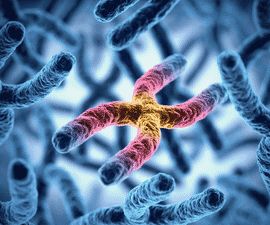
Treatment Options
Targeted and Drug Therapy

Targeted therapy is a type of cancer treatment that targets proteins that control how cancer cells grow, divide, and spread. As researchers learn more about the DNA changes and proteins that drive cancer, they are better able to design treatments that target these proteins.
Types of Targeted Drugs
Choose from the dropdown menu or scroll to learn about specific targeted therapies:
Biosimilars
When the patent for a prescription medication expires, other companies may create and sell an exact copy of that medication (usually referred to as a generic drug) provided at substantially reduced costs. However, replicating biologic drugs is more complicated than making copies of chemically produced medications, because biologic drugs are made in living organisms and are very complex. Biosimilars is the term used to describe products that copy biologics. Biosimilars must undergo review by regulatory agencies such as the U.S. Food and Drug Administration (FDA).
Approved biosimilars for the treatment of lymphoma include:
- Adalimumab-adbm (Cyltezo)
- Adalimumab-atto (Amjevita)
- Bevacizumab-awwb (Mvsi)
- Etanercept-szzs (Erelizi)
- Filgrastim-sndz (Zarxio)
- Inflixmab-abda (Renflexis)
- Infliximab-dyyb (Inflectra)
- Rituximab-arrx (Riabni)
- Rituximab-pvvr (Ruxience)
Bruton Tyrosine Kinase Inhibitors
Bruton tyrosine kinase (BTK) is a protein critical for the growth and survival of B-cells. BTK inhibitors can kill malignant B-cells but leave healthy T-cells largely unaffected, which distinguishes it from several other treatment methods.
Approved BTK inhibitors for the treatment of lymphoma include:
- Acalabrutinib (Calquence)
- Ibrutinib (Imbruvica)
- Zanubrutinib (Brunkinsa)
Learn more about BTK inhibitors and oral therapy >
Chemotherapy
Chemotherapy halts cell growth and division to prevent cancer cells from making more and more cancer cells; however, chemotherapy drugs not only affect the cancer cells but also any normal rapidly dividing cells, which cause side effects.
Learn more about various chemotherapy regimens >
Histone Deacetylase Inhibitors
Histone deacetylases (HDACs) are proteins that regulate deoxyribonucleic acid (DNA), influencing which genes are used to make proteins and ultimately affecting the actions of the cell. Some cancer cells make excess HDAC, so inhibiting HDAC can inhibit cancer cell growth or cause cell death. Approved HDAC inhibitors to treat lymphoma include:
- Belinostat (Beleodaq)
- Romidespin (Istodax)
- Vorinostat (Zonlinza)
Hypomethylating (Demethylating) Agents
A hypomethylating agent (sometimes called a demethylating agent) is a treatment that inhibits DNA methylation, thereby triggering the re-programming of tumor cells. These agents have been investigated as monotherapy or in combination with other epigenetic agents.
Immunomodulators
Immunomodulators (also known as immunomodulatory drugs [IMiDs]) have many ways of working against tumor cells. They cause tumor cells to die, help keep tumors from getting nutrients from the blood, and stimulate the immune system to encourage the destruction of cancer cells. Approved immunomodulators to treat lymphoma include:
- Lenalidomide (Revlimid)
JAK Inhibitors
Janus kinase (JAK) inhibitors target, binds, and inhibit the activity of one or more of the Janus kinase family of enzymes (JAK1, JAK2, JAK3, and tyrosine kinase 2 [TYK2]), non-receptor tyrosine kinases that transduce cytokine-mediated signals via the JAK-STAT pathway. Cytokines are small signaling molecules released by certain cells of the immune system that coordinate cell-to-cell communication to help regulate the body’s immune system.
Monoclonal Antibodies
Monoclonal antibodies are the most common biologic agent used for lymphoma treatment. Antibodies produced by the immune system recognize and destroy “foreign” invaders such as bacteria and viruses. Scientists can now produce monoclonal antibodies in the laboratory that are designed to recognize antigens (specific molecules) that are present on the surface of certain cancer cells. Once in the bloodstream, monoclonal antibodies travel throughout the body and attach themselves to their specific target antigens. Approved monoclonal antibodies to treat lymphoma include:
- Alemtuzumab (Campath)
- Mogamulizumab-kpkc (Poteligeo)
- Obinutuzumab (Gazyva)
- Ofatumumab (Arzerra)
- Rituximab (Rituxan)
- Tafasitamab-cxix (Monjuvi)
Learn more about monoclonal antibodies and immunotherapy >
Oral Therapies
In the past, most treatments for lymphoma had to be given intravenously (IV) at a hospital or cancer center. However, today there are many chemotherapeutic drugs and targeted anticancer drugs for the treatment of lymphoma that can be taken by mouth, either in liquid or tablet/capsule form. Oral agents can be very effective at suppressing cancer cell growth and at maintaining long-term remission (disappearance of signs and symptoms). Although oral agents are pills that you can take at home, they can have side effects.
Learn more about oral therapy >
PI3K Inhibitors
Phosphoinositide-3-kinase (PI3K)-delta is a molecule that transmits signals that help B-cells grow, move, divide and survive. PI3K inhibitors help to stop or slow down the growth of lymphoma cells. Approved PI3K inhibitors for the treatment of lymphoma include:
- Duvelisib (Copiktra)
- Idelalisib (Zydelig)
Learn more about PI3K inhibitors and oral therapy >
Proteasome Inhibitors
Inhibition of proteasome activity (structures inside cells), causes cancer cells to die. Bortezomib is approved for the treatment of lymphoma and is given as an injection into a vein or under the skin.